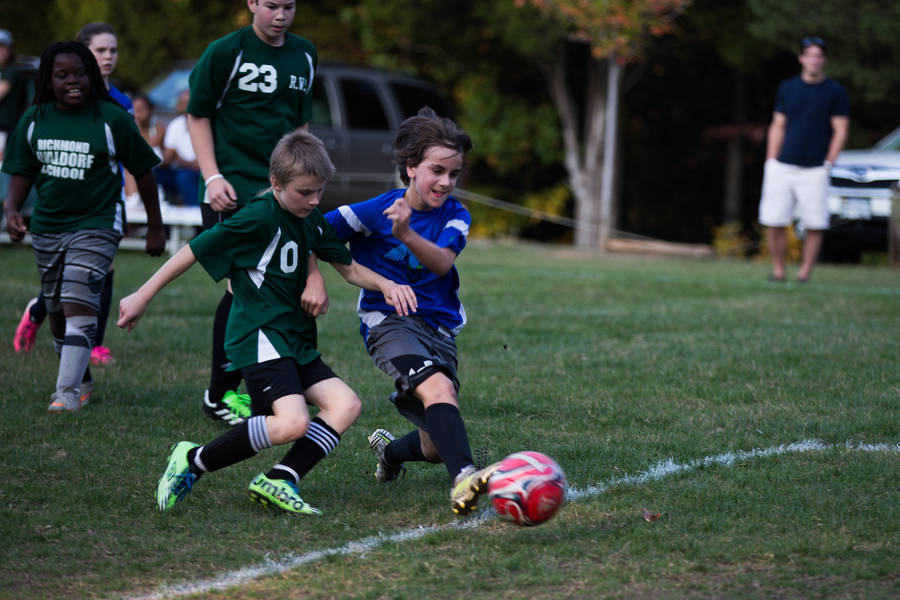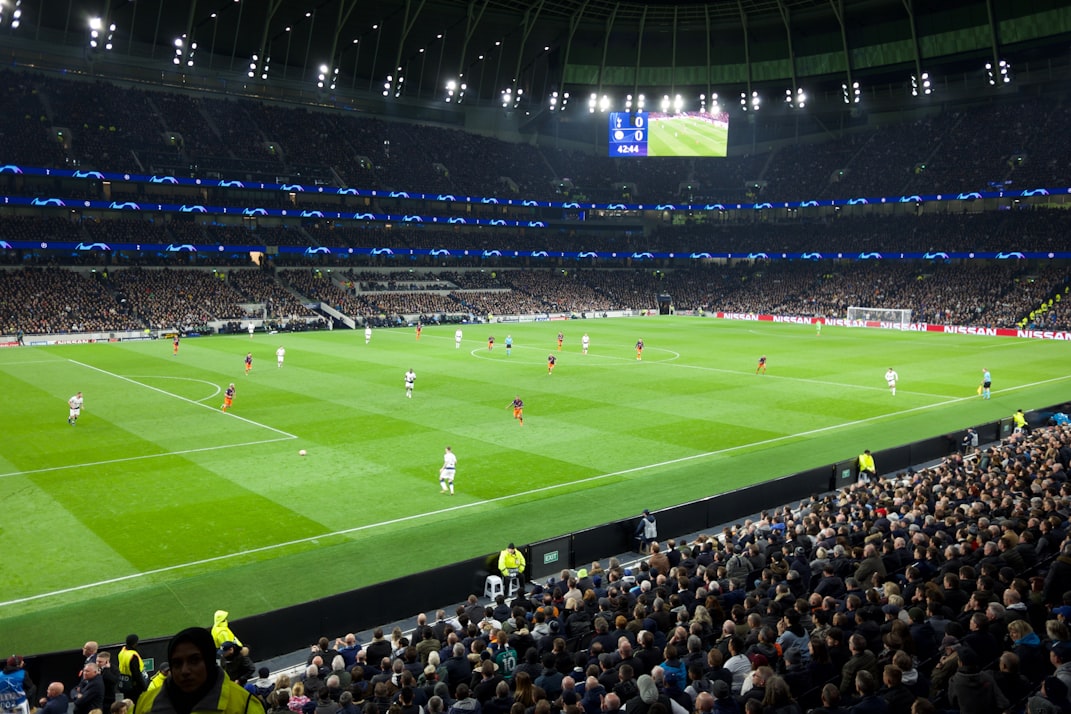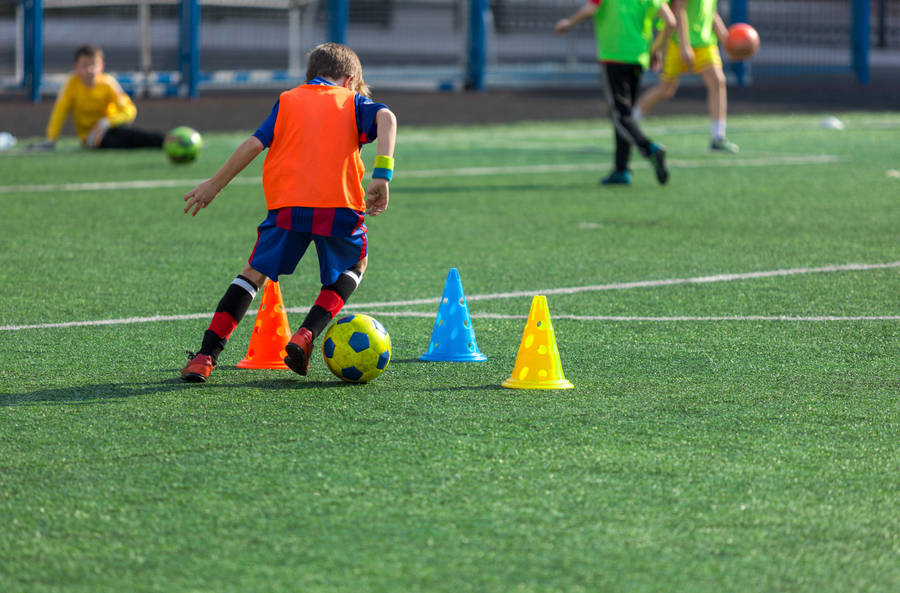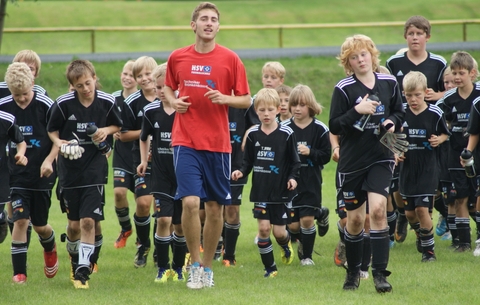
I bumped into an old friend from my junior football playing days recently and it was good to catch up with someone I’d not seen since we used to line up together for the local team decades earlier. I was more than interested to find out that he hadn’t played much beyond his junior days and had been forced to give up the game altogether in his early 20’s because of a troublesome knee injury.
He was a good player, very good in fact, representing England schoolboys at age group level but the fact that he was made to represent every possible team he was eligible for, from England down through County level, City representative level, Grassroots and school levels as well as all the associated training meant that he was playing over 100 games a season and doing his body no favours. This was the days before the professional academy structure where he would presumably have found a home and been managed much better, but it got me thinking about some parallels with junior grassroots players today.
I think it’s right to celebrate those young players that do more than they’re asked in the pursuit of becoming better a player. “Doing extras” has become part of the modern conversation around youth development and simply relates to the age old adage that practice makes perfect.
But while this level of dedication is to be admired, I think there's a growing concern across grassroots football about players doing too much and suffering from burn out. As both a coach and observer of the junior football for many years, I've witnessed first hand how the pressure to excel can push promising young footballers towards burnout rather than breakthrough.
I was interested to see that recent findings from local football associations across the UK paint a worrying picture with young players training more intensively than ever before. Between school football, local grassroots teams and development sessions, many young players are training or playing matches on every day of the week, often without proper rest or recovery time. While the enthusiasm is commendable, this approach can be counterproductive and potentially harmful.
The signs of overtraining in young footballers can be subtle at first. Physical symptoms might include persistent muscle soreness that doesn't improve with rest, frequent minor injuries, or difficulty sleeping through being ‘wired’ from over stimulation from football. The psychological signs are equally important and can include a loss of enthusiasm for training, irritability or anxiety about performance.
What makes this particularly challenging in grassroots football is the culture of 'more is better.' Many well meaning parents and coaches believe that increased training time is the key to improvement. The "10,000 hours" principle, popularised by Malcolm Gladwell, has inadvertently contributed to a culture where quantity often overshadows quality in junior development. However, more recently sports scientists working with professional academies have found that quality of training matters far more than quantity. A focused one hour session with proper intensity and recovery periods proves more beneficial than three hours of unfocused, exhausting practice.
It can be challenging for grassroots coaches who may only get 1 hour of contact time with a player, potentially unaware of all the different football commitments that go into that individual player’s week. Their hour could be 1 of 15 or 20 that player is doing on a weekly basis.
To combat this I’ve heard of examples such as the Berkshire Youth Football League, which recently implemented rest periods between matches and training sessions for their under-12 teams. The
results were striking with drop outs due to injury dropping by 30% over the season, while coaches reported improved performance and concentration levels among players. This practical approach to managing training loads offers valuable lessons for grassroots football across the country.
How can we prevent overtraining while maintaining the development of our young players? The solution, as ever, lies in a balanced, common sense led approach that considers the whole child, not just the footballer. There are some practical strategies for both coaches and parents that have proven to support young footballers in avoiding burnout.
First, implement a 'two-day rule', ensuring young players have at least two full days off from football each week. This doesn't mean they can't be active, swimming, cycling or other sports can provide excellent cross training benefits while giving football specific muscles a break.
Second, learn to recognise and respect the signs of fatigue. If a player is showing decreased performance, unusual tiredness or loss of enthusiasm the natural reaction for many is to push them harder but instead it might be time to reduce the intensity and focus on fun, skill based activities until their energy returns or have a complete break.
Third, prioritise sleep and nutrition. Young players need 9-10 hours of sleep per night for proper recovery. A balanced diet rich in proteins, carbohydrates and healthy fats provides the fuel needed for both training and growth. Simple changes, like ensuring players have a proper breakfast before weekend matches and staying well hydrated can make a major difference.
It’s also wise to vary the training routine as monotony can lead to both physical and mental burnout. Mixing up training sessions with different activities such as skill challenges, small sided games and even non football sports can maintain fitness while reducing the risk of overuse injuries.
The guidance of parents is crucial in preventing overtraining. Many young players participate in multiple teams or training programmes, and parents are often the only ones with a complete picture of their child's football commitments. Keeping a (mental) log of all football activities and being prepared to scale back if it becomes too much is a good thing to do. The top academies build rest periods into their youth development programmes, it’s a way of supporting your child.
Coaches can support by creating an environment where players feel comfortable expressing fatigue or concerns about their training load. Regular communication with players and parents about energy levels, enjoyment and any physical niggles can help catch potential problems early. It's also important to remember that every player develops differently and what works for one might be too much for another.
The mental aspect of overtraining deserves special attention in grassroots football. Young players today face more pressure to perform, often exacerbated by social media and the unrealistic expectations of those around them. Creating an environment where mistakes are seen as learning opportunities and where effort is valued over outcome is vital for long term development of players.
While the role of grassroots football is to develop better players and we invest so much time and energy in this, it's also about nurturing a lifelong love for the game. By taking a thoughtful approach to training loads, respecting recovery time and the warning signs of burnout, we can help our young footballers achieve their potential while staying healthy.


















